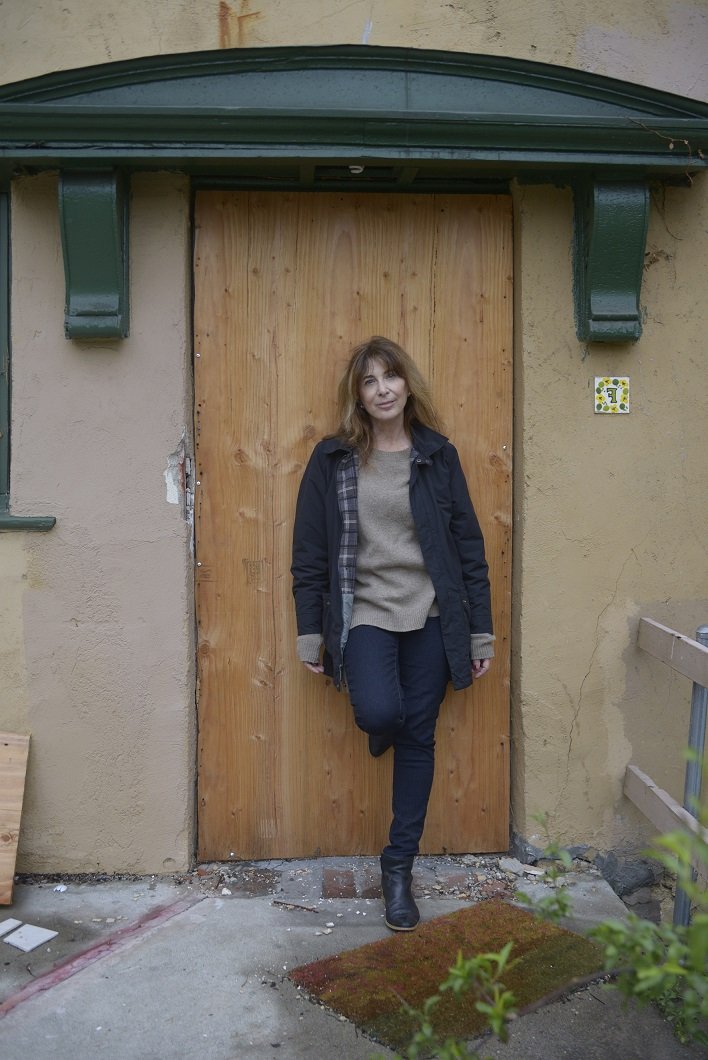
Photo: Reynaldo Rivera
On November 1 – 3 the Latvian Centre for Contemporary Art invites you to American writer and filmmaker Chris Kraus’ public talk and film screening
Chris Kraus’ Talk on her new book Social Practices on November 1 at 6 PM at the Art Academy of Latvia (New Building)
What I couldn't write: Chris Kraus' Films from 1982 – 1995 on November 2 and November 3 at 6 PM at the art-house movie theatre Kino Bize, Elizabetes iela 37-2
Chris Kraus’ public talk and film screenings in Riga is taking place as part of her tour in Europe in collaboration with art institutions PUBLICS in Helsinki and Château Shatto in Los Angeles, the Art Academy of Latvia and Kino Bize.
In her talk in Riga Chris Kraus will speak about art as a social practice and her latest book, where mixing biography, autobiography, fiction, criticism, and conversations among friends, she continues the anthropological exploration of artistic lives and the art world begun in 2004 with Video Green: Los Angeles Art and the Triumph of Nothingness. Although Kraus casts a skeptical eye at the genre that's come to be known as “social practice,” her book is less a critique than a proposition as to how art might be read through desire and circumstance, delirium, gossip, coincidence, and revenge. All art, she implies, is a social practice.
Art critic Andrew Berardini writes, “before Chris Kraus became a literary icon for her sharp, funny and cultural criticism (often brilliantly churned together), she was by her own account awkwardly moving through the New York underground and art world as a “failed filmmaker.” It was her frustration with her lack of success in film that led her to pen her most famous novel, I Love Dick (1997), and there she found her voice as a writer: intimate, incisive, self-deprecating, and radically subjective.”
Kraus’ films range widely in form, feeling, and length. Each materializes from the meeting of desire and contingency, where the personal, political and practical contend with one another. What courses through each of these distinct films is a current of visions, refrains, genre, nostalgia, libido, sound, image and impulse. These films convey their maker’s process of sublimation and also an undoing of that same process. Kraus’ productions are necessarily experimental. Recurrently, she considers existing formats – the novel, the biography, the manifesto, the documentary, the trailer, the short and feature-length film – and retools them. The process of finding a process often becomes subject matter rendered visible in the work. Scripted dialogue and improvised exchanges share equal status. Footage might be captured on an involuntary whim, or be the consequence of assiduous planning.
The cohabitation of what is deemed high and cognitive, with what is deemed base and sentimental, takes full effect in her four novels and extends to the manner with which she considers artists and confronts their work in her critical writing. Yet this influential space that Kraus established – where the private and public modes of experience meddle with one another – is initiated in these nine films, each intoxicated and equipped with heady thinking and thick atmosphere.
In 2018, it’s almost implausible to consider Chris Kraus’ films without the heft of her subsequent writing bearing down on their reading. Kraus, who Holland Cotter describes as “one of our smartest and most original writers on contemporary art and culture,” develops a method in her novels that invites the intellectual and critical mind of a writer to be built upon her emotional chassis.
Simone Weil, Antonin Artaud, Henry James and Chuck Berry are adapted for the screen through various methods; and a flurry of characters visit these works as subjects, actors, cameos and apparitions. Kraus also maps a community of contemporary writers, artists and performers by including them as collaborators, cast, and crew; on-screen appearances made by Sylvère Lotringer, Terence Sellers, Lee Madigan, Penny Arcade, Jim Fletcher, John Kelsey, David Rattray, Bill Raymond, Will Patton and Judy Nylon toy with boundaries between personality and character, between fiction and journalism.
Chris Kraus (b. 1955) is a Los Angeles–based filmmaker, writer, art critic, and editor whose novels include I Love Dick (1997), Aliens & Anorexia (2000), Torpor (2006), and Summer of Hate (2012). Kraus’ latest book is a literary biography of writer Kathy Acker: After Kathy Acker (2017). Kraus’ collections of essays on art include Video Green: Los Angeles Art and the Triumph of Nothingness (2004), Where Art Belongs (2011). She has written countless reviews, essays, and stories for publications such as Artforum, Art in America, Modern Painters, Afterall, The New Yorker, The New York Times Literary Supplement, The Paris Review, The Los Angeles Review of Books, Bookforum, and Texte zur Kunste. Kraus taught creative writing and art writing at The European Graduate School/EGS for ten years and has been a visiting professor at the Art Center College of Design, the University of California at San Diego, New York University, the San Francisco Art Institute. Along with Sylvère Lotringer and Hedi El Kholti, Kraus is co-editor of the publishing house Semiotext(e). Kraus is the recipient of a Guggenheim Fellowship for General Non-Fiction (2016), a Warhol Foundation Arts Writing Grant (2011), and Frank Jewett Mather Award for Art Criticism from the College Art Association (2008). Her first novel, I Love Dick, was recently adapted for television and released on Amazon Video. Forthcoming in 2018, Kraus will publish a collection of essays and stories, titled Social Practices.